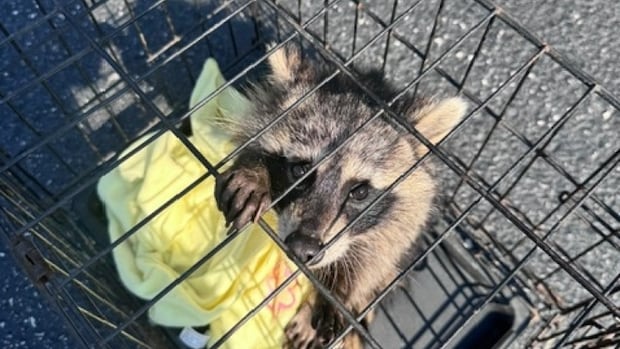In a small London, Ont., neighbourhood garden, some veggies from a bygone era are growing, and the woman who planted them hopes they can make a comeback to help with food insecurity.
Nestled in the centre of the Blackfriars Community Garden, Anne Marie Allen’s plot is marked with a large sign that says, “Depression Era Garden.”
Allen grew up on a farm north of the city, growing and canning food. Now retired as a minister, she started researching that crops were grown at a time when many Canadians went hungry.
“A lot of people think the Depression started when the stock market crashed, but it actually started during the war with severe food shortages,” she said.
During the First World War, shelves were bare as much of the food went to the war effort, Allen explained. She learned many people had to grow their own food to make ends meet, but some of the plants were not what you would find in stores today.
Leafy greens, like Good-King-Henry, were common, according to Allen. It has a tough texture, but can be harvested all winter long.
Perennial root vegetables like earth chestnuts and skirrets were also popular, she said, and very easy to preserve. The sweetness of skirrets, which has a starchy root, also made them a nice treat when sugar was hard to find.
Allen planted all of these and more in her garden this past spring, and made little signs to explain the potential uses for each one. When choosing what to plant, flavour was never a consideration, she said. In keeping with the Depression theme. The most important thing was how long she could store them.
“This stores fresh for eight months,” she said, showing off a Danish Ballhead cabbage. “And it’s one of the biggest cabbages to grow.”
Since these vegetables are so uncommon today, Allen ordered all the seeds from Small Island Seed Co. on Vancouver Island, a small business specializing in rare, cold-hardy perennial crops.
It’s hard to explain why these crops have gone out of style, said Richard Kuehnel, Small Island Seed’s owner. Skirret, which is similar to a carrot but grows in large bunches, even tastes a bit like a marshmallow, he said.
“It’s delicious and it’s easy to grow. Once you’ve got it, it’s actually hard to kill.”
Skirret may have disappeared in Canada because it’s not a very profitable crop when using modern farm equipment, Kuehnel said. As the roots are made up of many small tubers, it’s difficult to harvest and clean unless doing it by hand.
With information readily available online, however, Kuehnel believes these old-time perennial crops are becoming more well known.
“I find that more people are growing these things than ever, and that’s a really cool thing to see.”

As for Allen’s garden, she’s looking forward to the end of summer when she can harvest her new vegetables. She said she hasn’t tried most of them and it’s excited to taste the skirrets more than anything.
For now, she’ll keep tending her little garden plot and encouraging others in the community to do the same.
“I’m hoping that more people will go, ‘That’s interesting, I want to try that.'”





